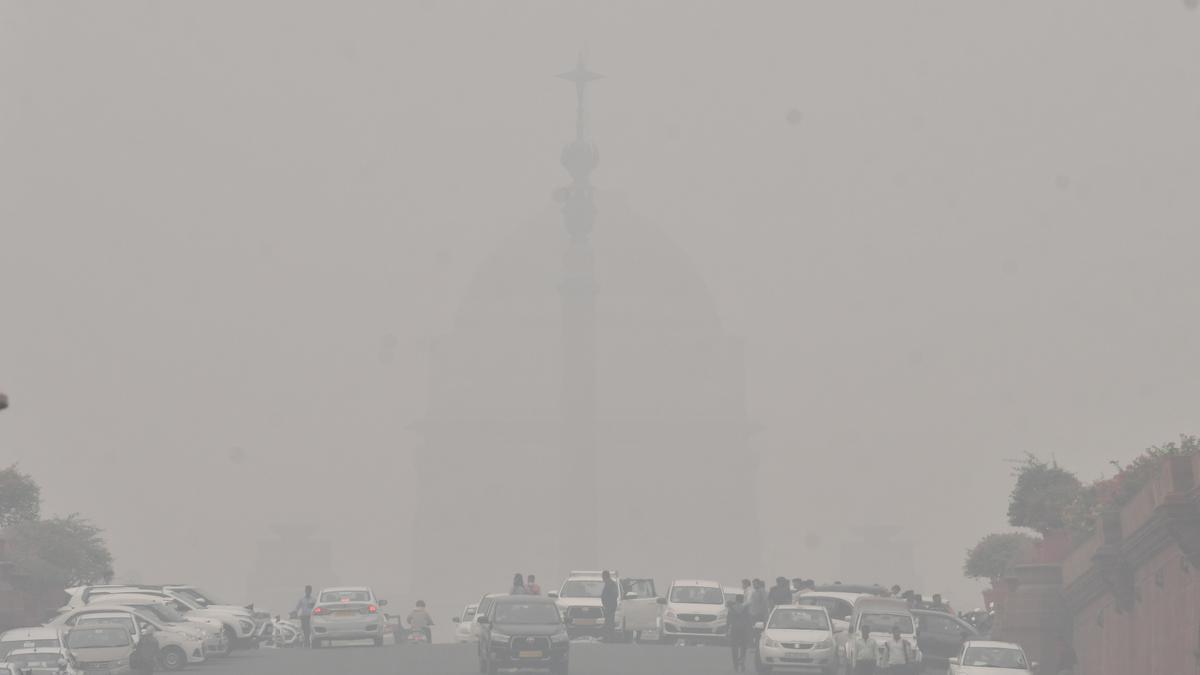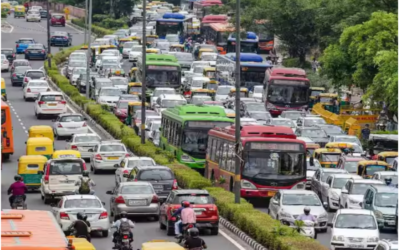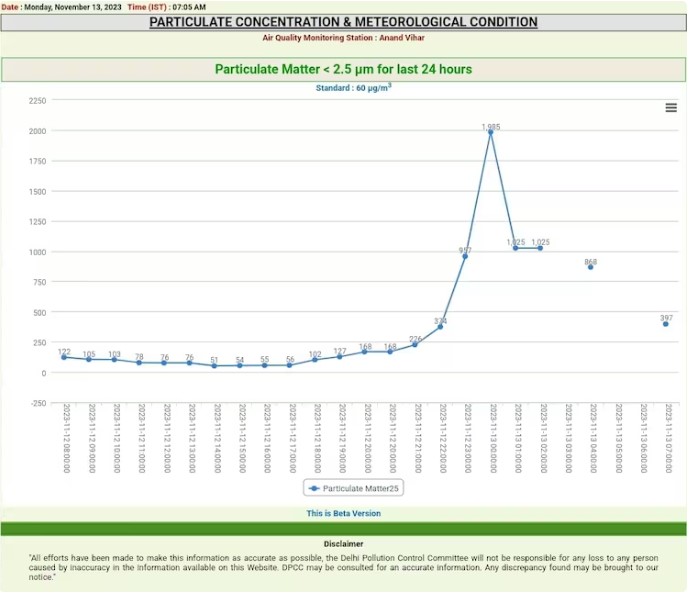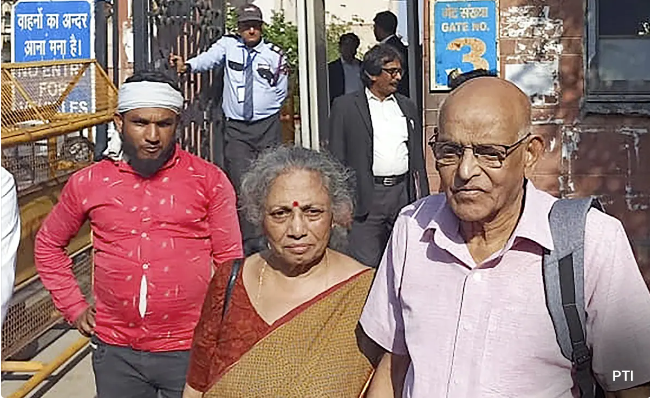The air quality in Delhi persists in the ‘Very Poor’ category.

On Thursday, the Central Pollution Control Board (CPCB) reported that the overall air quality in the national capital remained in the ‘very poor’ range. At 7 a.m., the Air Quality Index (AQI) at IGI Airport (T3) was 334, while in the New Moti Bagh area, it stood at 343. Punjabi Bagh recorded an AQI of 405 at 7 a.m., also falling within the ‘very poor’ category. Additionally, the AQI at Jawaharlal Nehru Stadium was 345 on Thursday morning at 7 a.m., according to CPCB data.
The Air Quality Index (AQI) for R. K. Puram was registered at 360, falling within the ‘very poor’ category. Additionally, the Central Pollution Control Board (CPCB) reported an AQI of 358 in the Anand Vihar area at 7 am, also categorized as ‘very poor.’
On Wednesday, the Supreme Court emphasized the urgency of addressing crop residue burning, a major contributor to air pollution in the Delhi-National Capital Region (NCR). Justices Sanjay Kishan Kaul and Sudhanshu Dhulia stressed the need for state governments to take effective measures to mitigate pollution, expressing a desire for improvements in the coming winter. Justice Kaul insisted on putting an end to crop burning and suggested judicial monitoring to prevent the recurrence of the same issues each winter.
The Supreme Court acknowledged the persistent problem of farm fires and noted the efforts of the committee chaired by the Union Cabinet Secretary, which has formulated action plans for states like Punjab and Haryana. The court directed the concerned states to implement these action plans and submit progress reports within two months.
The bench recognized the necessity of continuous monitoring, suggesting that the court should oversee the matter for an extended period rather than addressing it only when problems arise abruptly.
Attorney General R Venkataramani presented a note on behalf of the Centre outlining measures to address farm fires, including minutes from committee meetings chaired by the Cabinet Secretary. The court emphasized the need for collaborative efforts, specifying actions for Punjab, Haryana, Delhi, and various ministries. Punjab’s affidavit detailed the recovery of environmental compensation for crop residue burning, indicating a ₹2 crore penalty, but the court expressed concern that only 53% of the amount had been collected. Stressing the acceleration of recoveries, the court scheduled the next hearing for February 27. This legal matter originated from a 1985 plea on air pollution, with crop residue burning emerging as a contentious issue.







